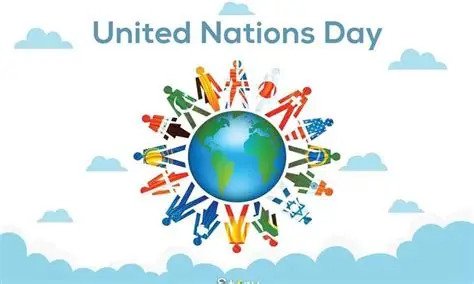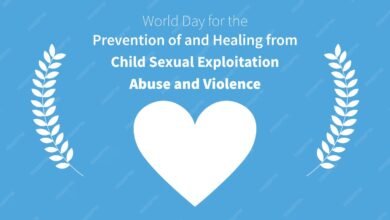United Nations Day: Building a Better World for Every Child

Every year on October 24, the world observes United Nations Day, marking the anniversary of the adoption of the UN Charter in 1945. This day commemorates the founding of the United Nations (UN), an organization created in the aftermath of World War II to promote peace, security, and cooperation among nations.
Since its establishment, the UN has been a pillar of hope for children and families, addressing some of humanity’s most urgent challenges, from protecting human rights to promoting education, health, and sustainable development.
United Nations Day reminds us of the UN’s enduring mission to ensure that every child grows up in safety, dignity, and opportunity.
The History of United Nations Day
Three years after the UN Charter came into force, United Nations Day was first observed in 1948. It was created to celebrate the organization’s growing influence in maintaining peace, promoting justice, and advancing human rights.
The UN was formed to prevent another global tragedy like World War II and to unite nations under shared values of equality and cooperation.
Today, with 193 member states, the UN continues to shape a world where children can thrive, one guided by peace, learning, and respect for all.
The Significance of United Nations Day
United Nations Day highlights the UN’s mission to build a better world for present and future generations. Central to this vision are the Sustainable Development Goals (SDGs) that address issues such as education, poverty, gender equality, health, and climate action.
Many of these goals directly impact children. From ensuring quality education for every child to ending child poverty and protecting children’s rights and safety, the UN’s agenda reflects its deep commitment to nurturing the next generation.
The UN’s Impact on Children Around the World
Since its inception, the UN has placed children at the heart of its mission. The establishment of UNICEF (United Nations International Children’s Emergency Fund), marked a turning point in global efforts to protect and empower children, especially those affected by war, displacement, and poverty.
Over the years, the UN’s impact on children has been profound:
1. Education and Opportunity
Through UNESCO, the UN has championed universal access to education, promoted girls’ education, and helped rebuild schools in conflict-affected areas.
2. Health and Survival
Agencies such as UNICEF and the World Health Organization (WHO) have led global vaccination campaigns, reduced child mortality, and provided nutrition support for millions of children.
3. Protection and Rights
The UN Convention on the Rights of the Child (CRC) remains the most widely ratified human rights treaty in the world. It guarantees every child’s right to survival, protection, development, and participation.
4. Peace and Security
The UN works through peacekeeping missions and child protection programs to shield children from violence, trafficking, and recruitment in armed conflicts.
These combined efforts have helped shape a world where more children survive infancy, attend school, and enjoy fundamental freedoms.
Importance of United Nations Day
a. Unity and peace are celebrated on United Nations Day
The United Nations upholds the values of peace, justice, human rights, and equality, values essential for children’s well-being.
By commemorating this day, we affirm our shared duty to create a safe and nurturing environment where every child can grow, learn, and dream freely.
b. It honors the numerous accomplishments of the United Nations
Since its establishment, the UN has achieved tremendous progress, reducing child poverty, promoting universal education, responding to emergencies, and safeguarding children’s rights.
These accomplishments continue to shape a generation that is healthier, more educated, and more connected.
c. It draws attention to global challenges
UN Day also raises awareness of issues that threaten children’s futures, including climate change, online exploitation, forced migration, and gender inequality.
Addressing these challenges requires collective effort from governments, communities, and individuals.
Ways to Celebrate United Nations Day
i. Engage in School Activities
Encourage children and students to learn about the UN’s role in promoting peace and children’s rights through classroom discussions.
ii. Support Child-Focused Causes
Volunteer or donate to UN agencies like UNICEF, UNESCO, or WHO, which support children’s education, health, and safety.
iii. Promote Awareness
Use social media or community platforms to share information about how the UN helps children around the world.
iv. Attend Events
Join cultural programs, exhibitions, or public lectures celebrating the UN’s contribution to a safer, more equitable world for children.
Conclusion
United Nations Day is not just about diplomacy or treaties; it is about people, especially children, whose futures depend on the world’s ability to work together.
For nearly eight decades, the UN has stood as a guardian of childhood, fighting for the right of every child to live free from fear and hunger. As the world continues to confront challenges, the UN’s promise remains clear: to leave no child behind.
Celebrating this day reminds us that global cooperation begins with protecting the youngest among us. When we invest in children through education, equality, and creating a peaceful environment, we invest in a brighter, more united future for all.





